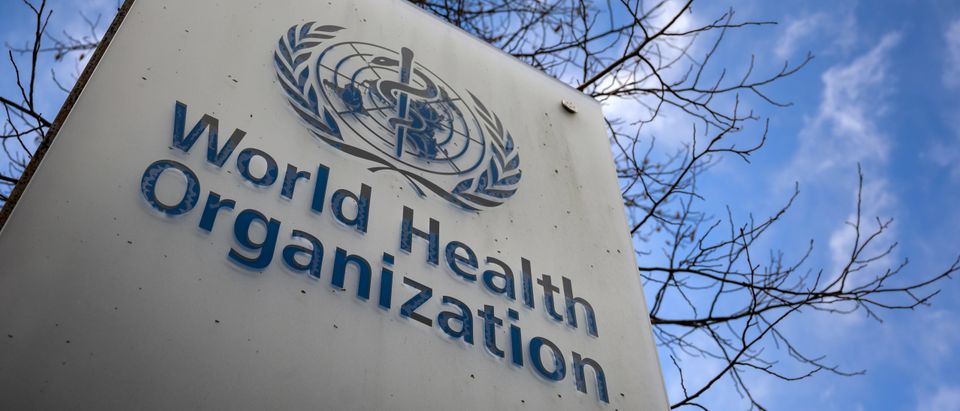The year-long official panic over the COVID-19 pandemic is giving way to sober analysis of some of the disastrous public policy choices made in response to the virus.
One such overdue reckoning is coming for New York Governor Andrew Cuomo, who seemingly caused thousands of needless deaths by shipping infected elderly people to nursing homes, placing the most dangerous among the most vulnerable. His administration then covered up the number of deaths it caused, recently justifying the move on the grounds that the truth would have been politically inconvenient. The governor who received an Emmy award for his “masterful” televised coronavirus briefings is now facing an FBI investigation and calls to resign.
Another prominent public figure ripe for a second look is Dr. Anthony Fauci. New documents show that he and other health officials initially concealed knowledge of the origins, nature and scope of the pandemic, placing American at risk while helping China avoid justifiable blame.
Judicial Watch and the Daily Caller News Foundation helped uncover 300 pages of emails and other records from Dr. Fauci and Dr. H. Clifford Lane from the U.S. Department of Health and Human Services showing that National Institutes of Health (NIH) officials tailored confidentiality forms to China’s terms, while allowing the World Health Organization (WHO) to keep a January 2020 epidemiological analysis under wraps.
International health officials were rightly concerned as information about the COVID-19 outbreak began slowly to emerge from the People’s Republic of China over a year ago. But they could not conduct rigorous investigations without Beijing’s cooperation. The PRC was closely controlling what could be known or discussed in order to dodge responsibility, and health officials outside China decided to cooperate, trading ethics for access.
For example, a January 20, 2020, email notes an epidemiological analysis the WHO conducted earlier that month but states that it is “strictly confidential” and “should not be further disseminated.” So just at the time when early intervention might have saved millions of lives worldwide, this critical early study was hushed up.
Later when international observers were finally being allowed into the PRC, they agreed to toe the line with what they could reveal. A WHO briefing package sent on February 13, 2020, to NIH officials cautioned that information about the virus be treated as “sensitive and not for public communications until we have agreed communications with China.” Emails over the next few days between Lane and WHO Technical Officer Mansuk Daniel Han made clear that confidentiality forms to be signed by the officials were “tailored to China’s terms.” And an email dated February 15, 2020, from WHO China office head Gauden Galea informed joint mission members traveling to China that all of their activities would be arranged and overseen by the Chinese Government’s National Health Commission.
It is hardly surprising that a communist state would seek as much control as possible over foreigners looking into their handling of a pandemic for which they were responsible. What is troubling is how accommodating American officials were, and how they kept China’s secrets.
Beyond simply kowtowing to Beijing in exchange for access, Fauci apparently played a part in Beijing’s PR campaign. A January 27, 2020, email from the Secretariat of the WHO’s Global Preparedness Monitoring Board noted a consensus to “issue a statement supportive of countries’ (especially China) and WHO response efforts, and to call for urgent actions to further strengthen global preparedness and response to this outbreak.” Fauci signed off on the statement, which commended “the transparency of China in sharing information and the genome sequence of the virus, and the strong collaboration between China and affected countries and with WHO.” This was part of a larger effort by WHO Director-General (DG) Dr. Tedros Adhanom Ghebreyesus to burnish China’s image during the crisis. This was also evident in the glowing report the WHO issued on China’s coronavirus response after the joint mission in February.
Praise for China became a major talking point for critics of President Trump’s coronavirus response, which was ironic since Trump in retrospect did much better than he has been given credit for. Recall that Trump banned travel from China on January 31, 2020, a move which Joe Biden quickly said reflected Trump’s “record of hysteria, xenophobia and fear-mongering.” As late as February 24 House Speaker Nancy Pelosi said the focus on China was racist, and encouraged people to “visit and enjoy Chinatown.” Current Biden Chief of Staff and former Obama Ebola czar Ron Klain also chimed in that people should “go to Chinatown” to “buy a meal, go shopping.” How many people died from all that bad advice?
Fauci’s role in the crisis needs further investigation. Under the terms of a September 22, 2020, court order, the Department of Health and Human Services is required to release 4,200 Fauci documents, but at the anemic rate of 300 per month. As we come up on the first annual anniversary of “two weeks to flatten the curve,” we need a closer look at how the crisis was handled at its outbreak, when the world had its best chance to stop the pandemic before it became a global health crisis and public policy fiasco. Those complicit in helping Beijing conceal the sources and extent of the initial outbreak should be held accountable. The fact that Dr. Fauci is still a revered public figure has much more to do with his political acumen than any demonstrated ability to manage public health. As more information emerges, Fauci may find himself going the way of “killer Cuomo.”
Chris Farrell is director of research and investigations for Judicial Watch, a nonprofit government watchdog.


